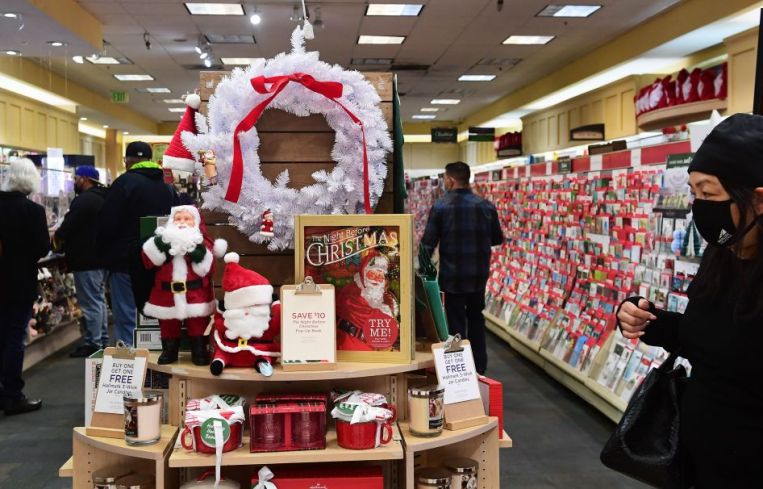Holiday Sales Jump 11 Percent Compared to Pre-Pandemic Levels: Report
By Nicholas Rizzi December 27, 2021 11:58 am
reprints
Holiday retail sales — both in-store and online — jumped 11 percent this holiday season compared to pre-pandemic levels in 2019, with e-commerce seeing massive growth, according to the Mastercard SpendingPulse report.
The report — which tracks consumer spending except for auto sales from Nov. 1 to Dec. 24 — found that in-store sales grew by 2.4 percent in 2021 versus 2019 while online purchases surged by 61.4 percent in that period, even with supply chain issues making it tricky to find some items on shelves.
“Shoppers were eager to secure their gifts ahead of the retail rush, with conversations surrounding supply chain and labor supply issues sending consumers online and to stores in droves,” Steve Sadove, a senior adviser for Mastercard, said in a statement. “Consumers splurged throughout the season, with apparel and department stores experiencing strong growth as shoppers sought to put their best-dressed foot forward.”
This year’s spending also showed an improvement compared to 2020, with total sales increasing by 8.5 percent, according to the report. In-store sales grew by 8.1 percent from 2020 to 2021 while online purchases increased by 11 percent.
Even with in-store sales notching gains, e-commerce continues to make up more and more of total retail sales, the report found. Online purchases comprised 20.9 percent of all retail sales in 2021, an increase from 20.6 percent in 2020 and 14.6 percent in 2019.
Black Friday, the day after Thanksgiving, kept its tradition as the busiest shopping day of the year in 2021 but was still off from 2019.
Apparel items had the biggest gains in retail spending in 2021 — 47.3 percent higher than 2020 and 29 percent more than 2019 — followed by jewelry, the report determined.
Experts braced for holiday sales to return to pre-pandemic levels this year — even in the face of supply chain disruptions and a surge in the omicron variant of the coronavirus — driven partly by “revenge” shopping, when consumers compensate for lost time by spending more.
Nicholas Rizzi can be reached at nrizzi@commercialobserver.com.



